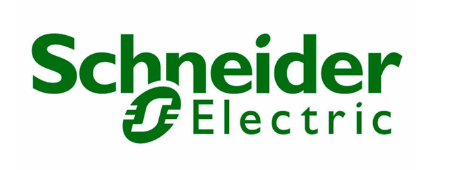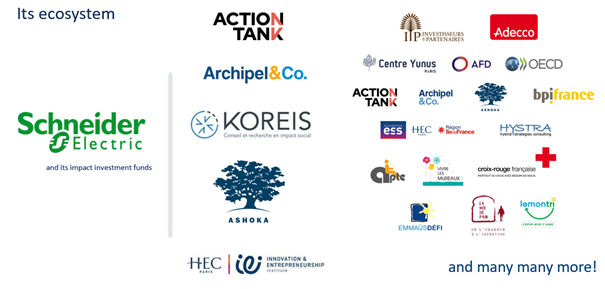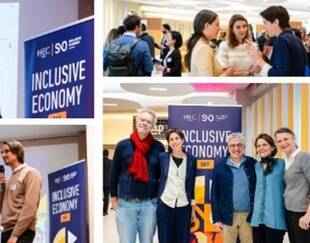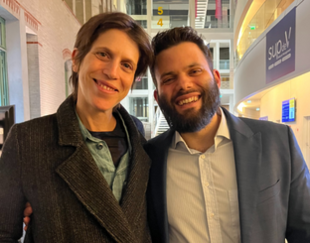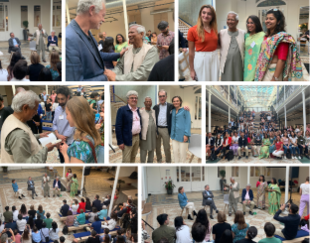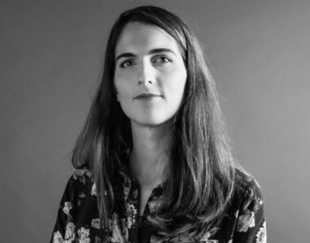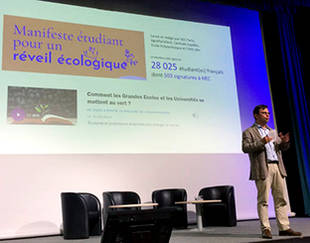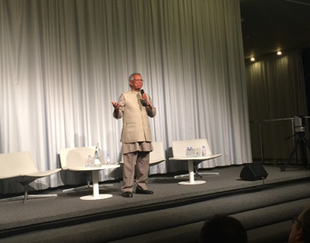
Impact Investing & Entrepreneurship for Systemic Change Impact Investing & Entrepreneurship for Systemic Change
The growth of the past decades has not been inclusive. Many business leaders have understood for years that non-inclusive growth is not sustainable, but the rise of global extreme poverty, the acceleration of inequality and the appearance of social anger has driven the movement to a new stage of awareness and accelerated calls to corporate action.
Building on the success of the Inclusive & Social Business program launched in 2009, and firmly convinced that impact investing and entrepreneurship are powerful vehicles for driving positive societal change while generating financial returns, the Certificate's academic board has revamped its curriculum.
The new program aims to equip participants with the tools to excel in impact investment and impact entrepreneurship, by combining financial and business model expertise with a deep focus on social impact.
Thanks to this Certificate, participants will learn to identify social needs/issues, develop innovative solutions, and create hybrid business models that balance profitability with purpose.
They will gain key skills in impact investment, due diligence, and social impact measurement, ensuring their ventures deliver measurable results.
With a focus on scaling and driving systemic change, this program will prepare participants to lead in the impact investing and impact entre/intrapreneur space and create lasting societal transformation.
The Certificate consists of two distinct components.
Students complete an in class “theoretical” module that explores impact investing and entrepreneurship domains. This complements all students' main fields of study, with courses such as: New hybrid innovative models; Impact Finance; Methods & Tools for systemic change » with sessions such as social impact assessment and behavioral economics.
The second module is "in the field", with a hands-on experience of 3 days spent in a social organization and a "field project"
- The Immersion days:
The objective is for participants to immerse themselves in the field of poverty alleviation by spending 3 days with social entrepreneurs and social organizations. The idea is both to spend time co-working in the field and to meet managers who are helping alleviate poverty. Such an immersion is meaningful and full of learning potential. It consistently makes an impact on participants’ lives.
- The Fieldwork:
The Fieldwork is an integral part of the Certificate. Participants are expected to work in groups on a “field project” throughout the six-week-program with five days earmarked so that participants have time in the field. Under the supervision of a business consultant, participants have with two options: doing the due diligence of an impact start-up, mentored by an impact investor or defining a business model to answer a specific social need, mentored by an impact entre/intrapreneur.
The presentation of the field project will take place in front of a jury of impact investors, entrepreneurs and academics at the end of the program.
One of the program’s strengths lies in the combination of HEC’s academic excellence, facilitated by professors and case study work, alongside the participation of business professionals who share their successes and failures with the students.
Its academic director is Professor Bénédicte Faivre-Tavignot.
In the previous editions, we welcomed :
Faculty and Experts:
- Marieke Huysentruyt, Associate Professor of Strategy & Business Policy, Academic Director of the S&O Institute
- Jacques Berger, Director of Action Tank
- Adrien Baudet, Ph.D, Founder and CEO of KOREIS, a social impact research and consulting firm
- Olivier Kayser, Founder of Hystra consulting firm
- Rachel Maignan-Vincent, Impact Investment Officer at Proparco
- David Menascé, Managing Director at Archipel & Co, an Innovation and Impact Entrepreneurship consulting company
- Laurence Moret, Secretary General of the Crédit Coopératif Foundation
- Charles-Edouard Vincent, CEO and Founder of Lulu dans ma rue and Founder of Emmaüs Défi
And other inspiring people:
- Emmanuel Faber, Chair of the International Sustainability Standards Board (ISSB)
- Martin Hirsch, Member of French Conseil d'Etat
- Professor Muhammad Yunus, Bangladeshi social entrepreneur, banker, economist and civil society leader, Nobel Peace Prize winner in 2006
The Certificate is open to a selection of HEC Paris students coming from very diverse backgrounds and nationalities: Grande Ecole M2 and MS/MSc students, MBA and EMBA participants.
It has also always welcomed a few non-HEC participants who want to explore the inclusive business ecosystem and who are motivated and willing to reflect with us on the role of business in the fight against poverty.
These persons would be participants of the HEC Stand Up Program, exchange students, Institut de l'Engagement's laureates, visiting professors, or business people reinventing their professional life.
This program has fostered a network of 800 alumni that we gather for main events like the 15th year of the Social Business dynamic at HEC with Professor Muhammad Yunus.
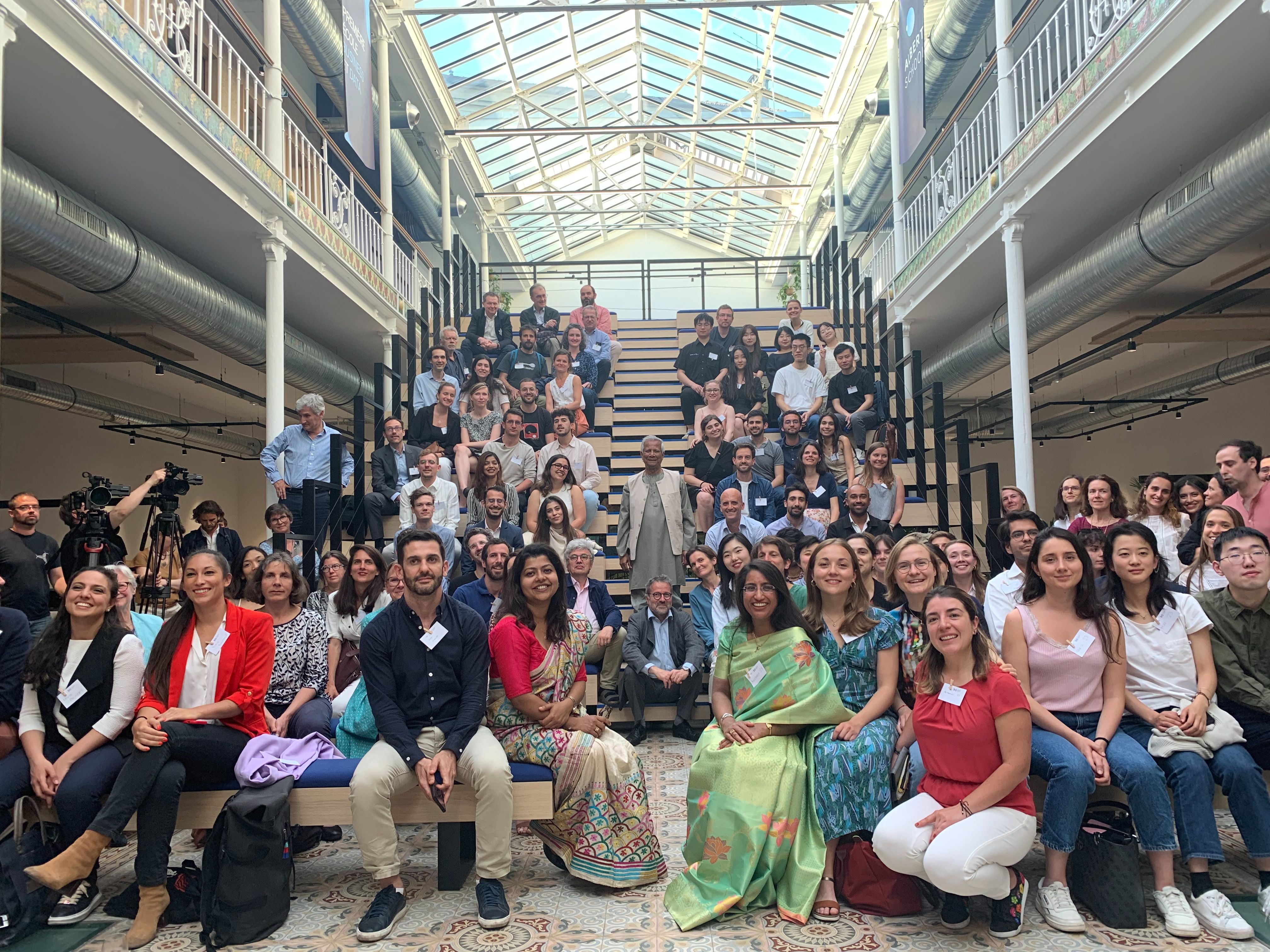

The Inclusive Economy Center of S&O Institute has been working on the contours of inclusive economy since 2008 - when HEC Paris created its Social Business Chair, with the support of Danone, Schneider Electric, Groupe Renault, Veolia but also with partners such as Action Tank, Archipel & Co, Hystra, Ashoka.
The Center draws on 16 years of experience, reflection, and interaction with the private sphere, public sphere, and civil society to address the fundamentals of an inclusive economy and business.
It is sponsored by
